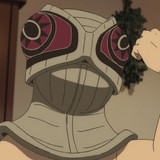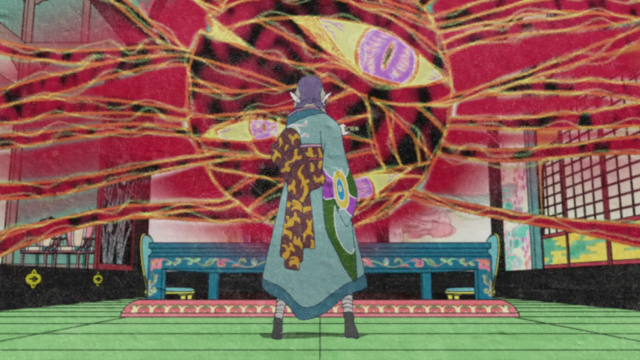#The Complexity of the Seven Sins in Fullmetal Alchemist: Brotherhood

“#The Complexity of the Seven Sins in Fullmetal Alchemist: Brotherhood”
Fullmetal Alchemist: Brotherhood remains one of the most celebrated anime in history. With a riveting plot, relatable themes, and complex characters, this anime has long made it to the list of anime classics that most people know about, even if they haven’t watched it. While there are many reasons why this anime has become so iconic, one of the most prominent reasons is its portrayal of the Seven Sins.
Arakawa-sensei, the author, put careful thought into the presentation of each sin, how they died, and most importantly, what the sins could’ve been if they had been utilized correctly. As Greed himself points out, sins aren’t necessarily bad. They can, in fact, be responsible for motivating admirable, courageous, and loving behavior. Only when utilized incorrectly do we see the sins become the downfall that most of these Homunculi represented.
Lust

With a luscious voice, thick black curls, and an alluring body, it is no surprise for Lust to embody the sin. Commonly associated with sexual obsession, Lust evokes that image well in the anime. Even her power, the ultimate spear, seems to be a jab at sexual activities. However, while most people associate lust with sexual desires, lust in its purest form means an intense and obsessive longing. As a result, while Lust herself inspires others to lust after her, she embodies the idea of bloodlust more with her brazen search for murder — so brazen that she was willing to kill FMAB’s “sacrifices,” the very people Father had ordered all Homunculi to never kill.
These very traits ultimately led her to an ironic death. Her bloodlust made her choose to have Roy die from blood loss rather than killing him instantly. Later, that same bloodlust pushed her to taunt Hawkeye and seek a kill solely for the thrill. Both her decisions allowed Roy time to catch up, seal the wound, and confront her again. Her brutal death at the hands of a supposed womanizer, who was actually fighting to protect a woman he is singularly loyal towards with barely any bloodlust, hits home the irony and complete defeat of Lust’s character.
However, FMAB added another unique element to Lust as a character. When she is not antagonizing the protagonists, she becomes the mediator of the Homunculi. Unlike her other “siblings,” she consistently shows to have a good and borderline loving relationship with them. The Homunculi start to fight with each other fairly quickly after her death. Most notably, the sins Envy, Gluttony, and Wrath were shown to be quite unhappy without her around. Excessive lust never bodes well, but lust can also easily translate into desiring an emotional connection, romantic or otherwise. It can fuel people to be more understanding, kind, and patient when seeking those connections. This would likely explain why Lust is the only Homunculus to have actually established that close sibling relationship with the others. One can only wonder what she could’ve accomplished if she tapped into emotional development rather than the bloodlust that fueled her.
Gluttony

“Fat fat slob” is how Edward describes this Homunculus, and it’s easy to understand why. With an elongated tongue and a gigantic mouth, the obese Gluttony shows his voracious attitude with the ability to eat literally anything. His brain is almost entirely fueled by the desire to eat, and the only time Gluttony shows interest in anything else is his grief over Lust’s death and his pain from dying. His personality, character design, and motivations fit directly into the sin of gluttony — excessive consumption.
His mental capacity to only concentrate on his appetite rather than anything else made him a terrible fighter, which led to his defeat by protagonists who already understood his fighting style and power. When he became more of a liability than an asset, Pride made the cruel decision to devour Gluttony’s core for himself. The Homunculus who could never stop eating was eaten by his oldest brother, a Homunculus in the container of a child with the mentality of an adult.
Gluttony’s death is cruel and shocking to many viewers, but I think what struck a chord is the fact that Gluttony is quite innocent. Despite the fact that the Homunculi murdered many innocent humans, Gluttony didn’t do it out of malice or bad intentions like all the other Homunculi did. Because Gluttony’s mentality is that of a child, he doesn’t really understand what’s right or wrong unless he is told. This personality works well with the sin because gluttony is strongly associated with a lack of patience and control — traits that are commonly seen with children. However, at the heart of negative traits, the cardinal sin also applies to insatiable curiosity. Gluttony displays that with his constant questions of, “Can I eat it?” or “What’s that smell?” Previously, Lust helped guide his curiosity as he learned what and what not to do, but after losing her, he lost the proper guidance, which prevented his growth. When Gluttony died, he died as a child without ever learning how to use that curiosity to consume other things in life — knowledge and emotions.
Envy

Envy is either the most hated or loved of the Homunculi, but they are undoubtedly one of the most complex. While seemingly malicious and relentless in their pursuits, Envy reveals that all their malice and antagonism is to hide the jealousy they harbor towards humanity’s resilience. This fits perfectly to not only their green hair and green monstrous form — a color often associated with the sin — but their ability to shapeshift into humans and blend in as them. However, Envy can never truly become human, no matter how much they try.
When Edward realized the truth behind Envy’s sin, Envy made the unique choice to kill themself after Roy completely burned out their Philosopher’s Stone. However, what makes Envy’s death the most impactful isn’t just the mere fact they chose to commit suicide. Rather, after spending the entire series longing for something that other people had, they chose to give up the only thing that ever truly belonged to them — their own life.
However, envy, though considered an ugly sin and ugly emotion, can lead to positive results. No one reflects that better than Roy, the very man who almost killed the Homunculus. Roy’s motivation throughout the series begins with wanting something someone else had: the Fuhrer’s title, a power that could change culture and determine how history is taught to future generations. Unlike Envy who tries to self-deny what they truly desire, Roy dedicates all his energy and actions into obtaining what others have. Envy had every opportunity to do exactly what Roy did, especially with their ability to blend in with the humans. The Homunculus could have taken the time to live among humans and learn about them to truly become one of them. However, by choosing to stew in self-denial and lashing out in violence towards humans, Envy lost their chance to turn their motivation into an accomplishment like Roy.
Sloth

Sloth is the last Homunculus the audience meets and also one that viewers hold the least emotional connection with, which fits perfectly. The sin of sloth is said to have great potential but a potential never fully realized out of laziness. Certainly, Sloth could’ve been a force to be reckoned with from the very beginning if introduced earlier. Although he speaks and moves slowly, Sloth is incredibly strong, the fastest of the Homunculi, and his skin is almost impenetrable against normal weapons. Only Major Armstrong’s alchemy could draw blood from Sloth’s hardened skin. Yet, despite his great offensive power, speed, and defensive abilities, Sloth dies after a single battle because he refuses to fight with his full potential and avoids fighting at all because he found it so annoying and tiring.
The fact that Major Armstrong is mostly responsible for Sloth’s death is poetic and ironic because of the foil Armstrong represents. Despite coming from a powerful family, having charisma, and inheriting the manly Armstrong genes, the Major hid away in shame when he realized the futility of the Ishvalan War. He openly admitted to fleeing from the conflict instead of confronting the corrupt government’s actions. However, Major Armstrong eventually rebels against the Amestrian Military and rights the country’s misdeeds, which is a stark contrast to Sloth who complains and never actively fights back.
After all, in the few moments that we do see him, Sloth makes it clear that he doesn’t really have any hard feelings towards humans. He only continued to fight and kill them because he was too lazy to even think for himself and believes that thinking was more tiring than physically fighting. One can only wonder if he would’ve enjoyed the company of humans more than working as a slave for his supposed Father if he actually took the time to think and utilized his brain rather than just doing whatever was asked of him.
Wrath

While most people associate the sin of wrath with explosive anger and loud violence, Arakawa-sensei funneled cold fury and calculated murder into Wrath’s character. With a consistent tone, analytical mind, and a usually friendly face, Wrath represents the danger of repressed and quiet anger that goes undetected and unreleased except in extreme coldblooded violence. This particular representation is usually portrayed in supporting characters who act like goofballs but hide their badassery in anime. The decision to portray this in an antagonist — who not only talks politely but also dresses sharply — reminds us that the scariest dangers hide within reassuring smiles.
Wrath’s death actually consists of two layers. The first is Scar defeating Wrath in a decisive battle, a direct metaphor to Scar’s own triumph over his own sin of wrath. After spending almost the entire series killing alchemists out of spite and fury, some of whom had no involvement with the Ishvalan War, Scar defeats Wrath to save the world. The second layer comes in the form of Lan Fan. Scar physically defeats Wrath, but he doesn’t kill the Homunculus. Instead, as the Homunculus lies dying, Lan Fan approaches him, seeming ready to take revenge for her grandfather. Instead, she takes off her mask to glare upon him angrily and questions whether Wrath ever truly loved anyone in his life. When Wrath chuckles at the fact she lost her chance for vengeance over “meaningless questions,” Lan Fan seems sadder at the fact that he died after living such a cursed life that actually came with silver linings, namely his wife. In the end, Wrath is defeated by someone who overcame the worst of his sin and is escorted to death by someone who never let the sin consume her in the first place.
Both Scar and Lan Fan represent people who ultimately utilized the sin of wrath to positive results. Scar’s wrath stemmed from righteousness and a desire to rebuild what his people had lost. By overcoming his uncontrolled fury while still focusing on the core of what had originally angered him, Scar was able to accomplish his true desire and oversaw the efforts of a new Ishval in the end. Lan Fan’s wrath came out of protection. She is easily triggered when Ling gets insulted in any shape or form, and she feels deep fury towards Wrath for her grandfather’s death. However, the anger she displays is an indication of her ability to care and love alongside a deep desire to do what is right for her people. Both characters’ anger stems from their hearts and place of love. The fact that Wrath was absolutely capable of that love, seeing how he did actually love his wife, only makes his death sadder. He had the opportunity to become a man with the capacity to feel angry for the right reasons and motivate him to make the right decisions but never chose to do so, choosing only to operate and kill in unfeeling anger.
Greed

Greed is undoubtedly one of the most popular and loved Homunculus within the series and the audience, thanks to his charisma and overtly social personality. However, his more agreeable nature makes sense considering the nature of his sin. Greed means to always want more and never feel satisfied, and it is certainly a lot easier to get more if you’re well-liked. In fact, Greed’s desire for everything stretches far beyond his materialistic desires. Through that thought process, he becomes the only Homunculus to stay in touch with his nature and also surpass his own limitations.
Many people point out the irony of Greed sacrificing his life to save Ling’s. It is considered a completely selfless action that certainly runs counter to greedy people, but I think the true twist is that he actually acted in character. In the end, Greed reveals the “emptiness” inside him. He was not searching for power or the world but the bonds formed between friends. This makes perfect sense in the context of the series: human lives cannot be measured because their values are unlimited. By that extension, it also means that the bonds humans form with each other are just as priceless as the souls that forge them. Greed wanting something quite priceless fits right in with his nature, and it fits that once he realized he had actually achieved that priceless treasure, he wouldn’t want to lose it no matter the cost.
The greatest difference between Greed and his siblings is his own self-awareness of what his nature represents. By recognizing the flaws of the sin, the Homunculus successfully utilizes his nature to its best potential and is rewarded in turn. He inspires loyalty from the chimeras he saved and he learns to care about humans. By the final battle, Greed demands injured soldiers and normal humans to stay behind him, so as to protect their lives with no obligation on his end to do so. If Greed has taught us anything in the series, having ambitions and wanting things for others or yourself is never bad if you use it to help others or to better yourself as a person.
Pride

Pride is one of the bigger plot twists to the show — and one I find particularly brilliant. Pride takes the form of a child, though he’s actually the oldest of the Homunculi. His personality mirrors that of someone who knows more and thinks like an adult, yet he is still prone to childish tantrums when the protagonists outsmart him. Even his voice shows duality: it can easily pass off as a child or a grown woman. This constant clash of childlike looks and behavior with a more knowledgeable, and to a degree, mature outlook represents the fact that the sin of pride is present regardless of age, gender, or background. And in a sense, the sin of pride inevitably makes adults and children not too different.
This characteristic of Pride also serves well to represent Edward’s greatest flaw. Edward starts the series believing alchemy can solve any problem and that he is naturally better than the people around him by being an alchemist. Since he is also a teenager, his age fits in the middle of the two phases of life that Pride embodies: childhood and adulthood. Ultimately, Edward’s growth into adulthood depends on his ability to overcome his greatest flaw lest he falls into the same trap as Pride — a knowledgeable adult with a child’s attitude and ego. Ed’s final defeat of Pride represents the growth Edward has gone through and shows the danger of holding onto self-denial in the name of ego.
After all, Pride is blind to the fact that he actually lacks a true identity, despite claiming so proudly of having one. His entire purpose and pride were made up of what Father had built for him. He did what Father told him to do, he based his arrogance on his molecular makeup, and he was proud of himself for accomplishments that he did not choose to make on his own but was commanded to do. If Pride ever took the time to truly develop something for himself and his own beliefs and actions rather than depending on another to make him feel important, he would’ve been able to embrace the positives of the sin for what it truly is — standing up for yourself, feeling confident in yourself, and knowing exactly who you are independent of anyone else.
If you liked the article, do not forget to share it with your friends. Follow us on Google News too, click on the star and choose us from your favorites.
For forums sites go to Forum.BuradaBiliyorum.Com
If you want to read more anime-manga articles, you can visit our anime-manga category.




